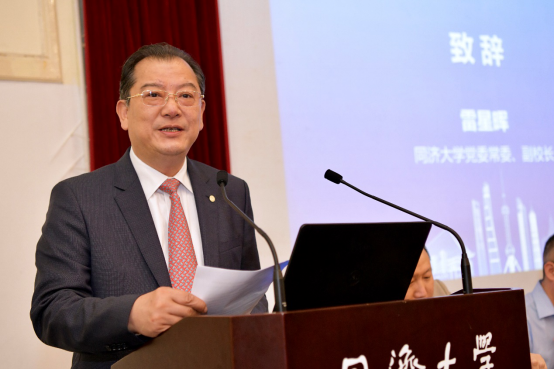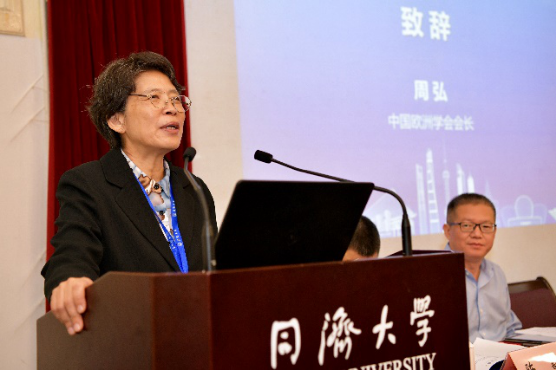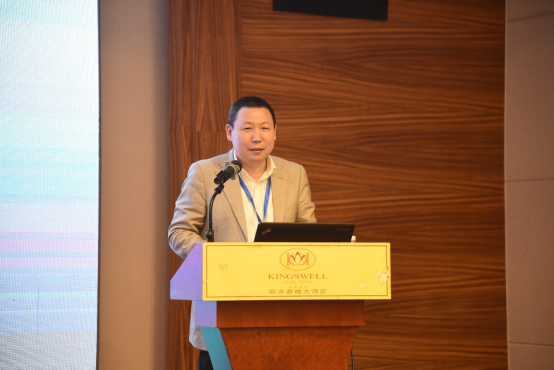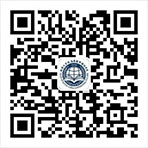
Hosted by the Chinese Association for European Studies (CAES) and organized by the School of Political Science & International Relations (SPSIR) and the Center for German Studies, Tongji University, the annual conference 2019 of CAES was held in Yifu Building on the morning of May 18, 2019. Zhou Hong, President of CAES, Huang Ping, Director of the Institute of European Studies (IES) of the Chinese Academy of Social Sciences (CASS), Yu Yuantang, Deputy Director-General of the Department of European Affairs at the Ministry of Commerce, Shi Xiaoying, Counselor of the Department of European Affairs at the Ministry of Foreign Affairs, and Lei Xinghui, a member of the Standing Committee of the Party Committee and Vice President of Tongji attended the opening ceremony, which was moderated by CAES Executive Secretary-General Chen Xin.
Themed “Europe at the Crossroads”, this one-and-a-half-day conference was comprised of 4 breakout sessions, attended by more than 160 participants including experts and scholars engaged in European studies from the Ministry of Foreign Affairs, the Ministry of Commerce, universities and research institutes across the country. They discussed a number of topics such as European economy and governance, the Belt and Road Initiative (BRI) and China-Europe cooperation, European politics and society, and European diplomacy and security, etc.

Tongji Vice President Lei Xinghui and CAES President Zhou Hong gave opening speeches respectively. Lei introduced Tongji’s profound background in German and European studies, the research characteristics of SPSIR and the Center for German Studies, and the new opportunities brought to the discipline development of European studies at Tongji by the establishment of “National Innovative Development and Interdisciplinary European Studies” under the “Double First-Class” initiative. He hoped that CAES and other sister institutions would continue to support the development of Tongji’s liberal arts and European studies.

Zhou Hong said in her speech that this conference was attended by more participants than ever, reflecting continuous attention to European issues. This has constituted the most important foundation for the domestic academic community of European studies. Zhou shared her views on the world and European situations with other participants. She pointed out that we must pay attention to both the changed and unchanged sides of things, particularly the characteristics and complexity of European issues. As to the current anxiety in Europe, scholars should work on the European studies in a patient, meticulous and down-to-earth manner.
Afterwards, Yu Yuantang, Shi Xiaoying and Huang Ping gave keynote speeches. Yu introduced the current economic situation in Europe and analyzed the problems in the future development of China-EU economic and trade relations. Shi elaborated on the “highlights”, “features”, “key points” and “pain points” of the current China-EU relations. Huang encouraged the researchers to maintain their strategic focus and due confidence regardless of an uncertain international situation.
The subsequent session was moderated by Shi Jian, Director of the Center for European Studies at Sichuan University. Xu Mingqi, President of the Shanghai Institute for European Studies (SIES), Feng Shaolei, Director of the Center for Russian Studies at East China Normal University, Ding Chun, Director of the Center for European Studies at Fudan University, Wu Zhicheng, Director of the Institute of Global Studies at Nankai University, and Zheng Chunrong, Associate Dean of SPSIR and Director of the Center for German Studies at Tongji University, made speeches on the topics of “Prospects and Impact of the US-Europe Trade Negotiations” and “China-Europe-Russia Interaction in World Order Restructuring”, “China-EU Industrial Gap and Competition”, “Trends in European Terrorism and Reflections on Governance”, and “New Trends in EU Cyber Security Strategy and China-EU Cooperation” respectively.
More than 50 experts and scholars spokes in the four panel discussions that afternoon. The conference entered the closing ceremony after 5 experts delivered speeches on the morning of May 19. Wu Yikang, Honorary Life President of CAES and a researcher at the Institute for the World Economy, Shanghai Academy of Social Sciences, commented on the conference, and CAES Executive Secretary-General Chen Xin delivered a closing speech.

It is believed that in the current complex and volatile international situation, China and the EU need to strengthen cooperation because this is of great significance for upholding the multilateral trading system and opposing unilateralism and trade protectionism. When European integration is at stake, scholars in European studies also need to pay more attention to issues such as the challenges brought about by the recent European Parliament elections, the development momentum and future prospects of European integration, and the Belt and Road cooperation between China and EU. This annual conference has leveraged the CAES platform to build an important network for academic exchange on European studies in China. It is especially gratifying to see the new blood contributing to the continuous development of European studies in China.






